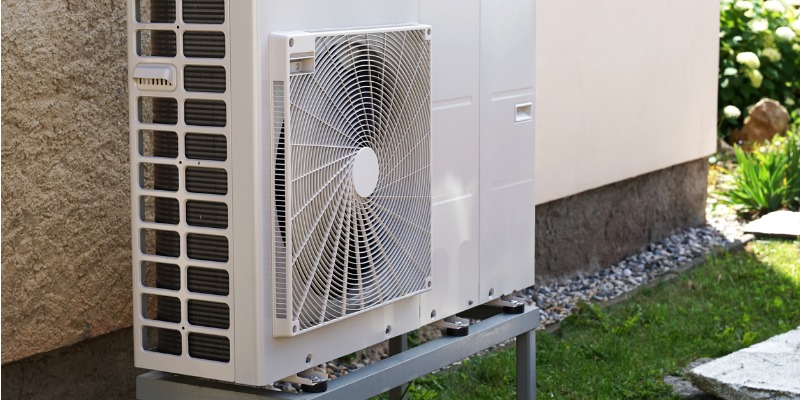
Ready to upgrade your home heating and cooling system to a more sustainable and efficient solution? Consider switching to a heat pump! With the Canadian government offering incentives for homeowners to make the switch, now is a great time to upgrade your HVAC system. In this article, we'll answer some of the most common questions about heat pumps, including how they work, their efficiency ratings, and more.
A heat pump is an HVAC system that moves heat from one place to another. It works by using a refrigerant cycle to absorb heat from the air outside (or the ground, in the case of geothermal heat pumps) and transferring it into your home. In the summer, it can provide cooling by reversing the process and moving heat out of your home.
An air source heat pump uses the outside air as a source of heat, while a geothermal heat pump uses the Earth as a source of heat. Geothermal heat pumps tend to be more expensive to install but can be more efficient in certain situations.
Cold climate heat pumps are specially designed to operate efficiently in cold temperatures. It uses a special refrigerant and compressor that are optimized for efficiency to extract heat from the outside air even when temperatures are below freezing. During extreme cold, however, the heat pump's ability to pull heat out of the air diminishes, sometimes necessitating an additional heat source such as a furnace.
Yes, heat pumps are extremely energy efficient. They use electricity to move thermal energy instead of burning fuel to create heat. As such, they can be over 50% more efficient than traditional heating systems.
Switching to a heat pump is a smart way to save energy and money, especially if you live in a moderate climate. An extra bonus is that federal and provincial governments are currently providing incentives and rebates for installing heat pumps. That said, if you live in a very cold area, you need to supplement your heat pump with a furnace or additional heating source.
A hybrid heating system combines a heat pump with a gas or electric furnace to provide efficient heating in all types of weather. The heat pump is used as the primary heat source in mild temperatures, and the furnace is used as a backup in colder temperatures.
Interested in learning more about heat pumps and if a heat pump will work for your family? Contact our team at Appleby Systems today for more information, we are happy to help!
The main difference between an air conditioner and a heat pump is that an air conditioner only provides cooling, while a heat pump can provide both heating and cooling. Heat pumps are also generally more energy efficient than air conditioners.
Yes, in Canada, there are heat pump rebates from the federal government, provincial governments, and various energy providers. Eligible homeowners across Canada can pre-register through the Canada Greener Homes initiative to access up to $5,000 in federal support for installing electric heat pumps. Also, Ontario homeowners can access additional funding through the Enbridge Gas Home Energy Rebate Plus program (HER+) for eligible heat pump retrofits which is a $1500 rebate.
Heat pumps can be up to 300% more efficient than electric baseboard heaters and up to 50% more efficient at cooling than a typical window A/C unit. Additionally, they're less expensive to operate than natural gas furnaces.
The heating efficiency of a heat pump is measured by its Heating Seasonal Performance Factor (HSPF), while its cooling efficiency is measured by its Seasonal Energy Efficiency Ratio (SEER). The higher these ratings, the more efficient a model is.
Generally, models rated at 17 SEER and above are considered highly efficient heat pumps. In 2023, the minimum efficiency requirement for heat pumps in Canada will increase from 14.0 to 15.0 SEER. This means that heat pumps will need to be even more energy-efficient to meet the new standards.
As of January 1, 2023, SEER2 will replace SEER when measuring the cooling efficiency of air conditioners and heat pumps. SEER2 is similar to SEER but uses different test conditions and was introduced by the US Department of Energy in 2016 to measure efficiency more accurately based on various factors.
When it comes to heat pumps, there are more benefits than we can count! Here are some of the key advantages of making the switch:
If you're interested in upgrading to a heat pump or have questions about the process, contact the experts at Appleby Systems. Our licensed HVAC professionals can help you find the perfect heat pump for your home as well as provide installation and maintenance services.
Don't wait to start enjoying the benefits of an energy-efficient HVAC system– contact Appleby Systems today!
